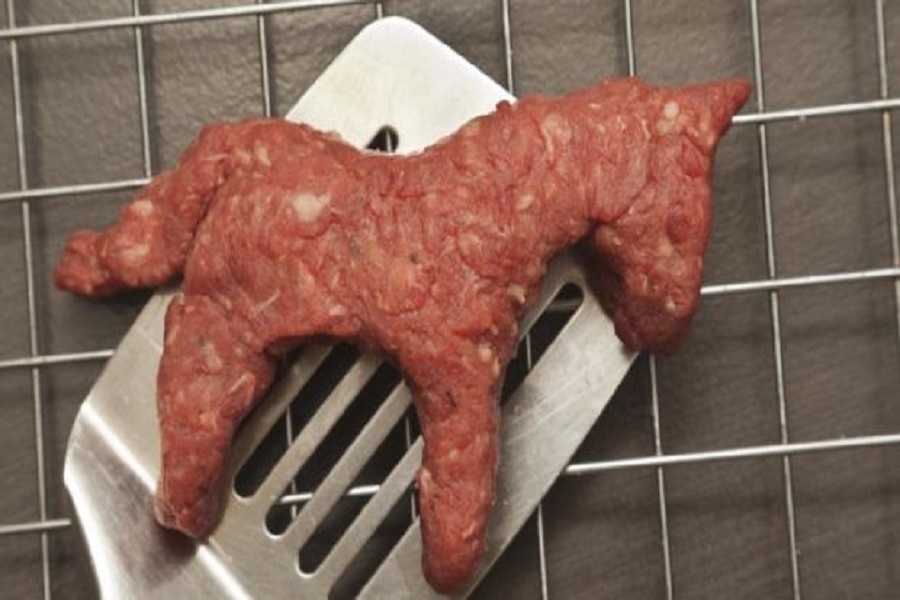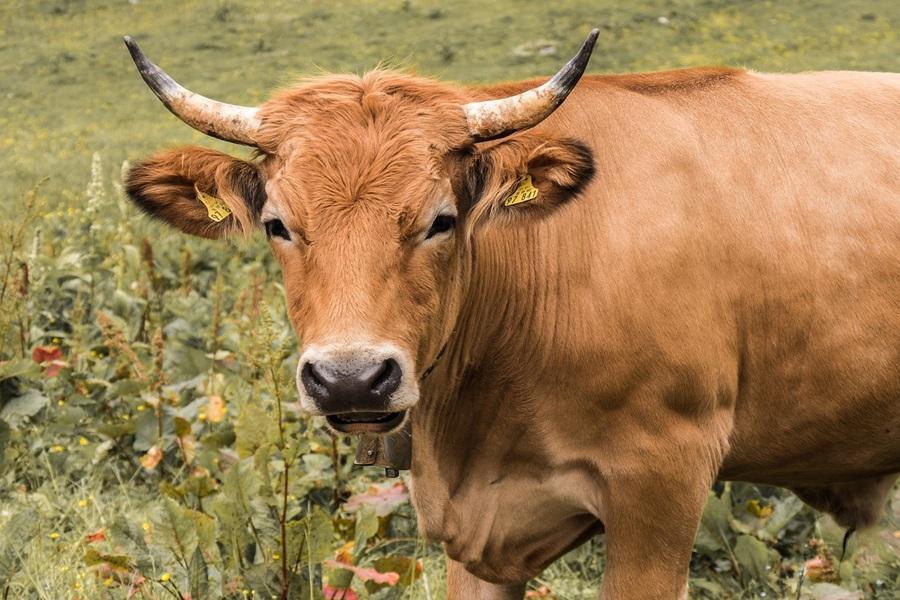There is a long history of the meat industry trying to sell horse meat under the pretence that it is actually beef.
Ever wondered what lurks within the burger you’re eating? Is it beef, or is it something else?
Psst…it is horse meat!!
The horse meat scandal shattered consumer trust and exposed the dark secrets of the meat industry. Behind the deceptive practices lies a disturbing truth: horse meat masquerading as beef.
It’s time to delve into the depths of this scandal, understand its implications, and explore why consumers should reject such unscrupulous practices. Making conscious choices can safeguard our health and contribute to a more sustainable and ethical future.
The shocking revelation
The horse meat scandal first came to light through routine food testing in Ireland, where traces of horse DNA were discovered in beef products. This discovery uncovered a complex network of suppliers and processors in Europe. Regulatory bodies and law enforcement agencies uncovered uncomfortable truths about the meat industry while tracing the source of mislabeled meat.
Let’s glance at the sequence of incidents that occurred during the scandal.
Event timeline
The Food Safety Authority of Ireland (FSAI) initiates testing beef products for horse meat.
- January 2013: Horse DNA is found in beef burgers sold in major UK and Irish supermarkets, announced by FSAI.
- February 2013: Horse DNA is discovered in European beef products, triggering widespread concern and investigations.
- February 7, 2013: Major food retailers remove affected products from their shelves.
- February 13, 2013: French company Comigel, a supplier of frozen meals, is identified as the source of the contaminated beef products.
- February 14, 2013: European Union ministers convene an emergency meeting to address the scandal’s implications.
- February 15, 2013: Ireland’s Agriculture Minister labels the scandal as a “fraudulent tampering” issue.
- February 26, 2013: The European Parliament established a special committee to investigate the scandal and propose preventive measures.
- April 2013: Horse meat is confirmed in beef products labeled as “beef lasagna” produced by Findus.
- May 2013: Europol launches Operation Gazelle to combat food fraud related to the scandal.
- October 2015: Dutch businessman Willy Selten is found guilty of selling horse meat labeled as beef.
- June 2017: Four men, including the owner of French meat processing company Spanghero, are convicted in France.
- June 2021: The European Court of Justice upholds fines imposed on companies involved in the scandal, including ABP.
Deceptive practices unveiled
The horse meat scandal exposed the deceitful practice of mixing horse meat with beef along the supply chain, falsely labelling it as 100% beef. This manipulation compromises the integrity of the entire industry and violates regulatory standards. The consequences for consumers are profound, ranging from health and safety concerns to ethical considerations.
The horse meat scandal has had far-reaching consequences for consumers. For example, consuming horse meat can pose significant health risks, as the meat may contain harmful substances such as phenylbutazone, a drug commonly used to treat pain in horses that can be dangerous to humans.
Additionally, many consumers are deeply troubled by the ethical concerns surrounding the mistreatment of horses in the meat industry, including the inhumane conditions in which they are often raised and the cruel methods used to transport and slaughter them. These issues have sparked widespread outrage and a call for greater transparency and accountability in the meat industry.
Implications for food safety and supply chain transparency
Broader implications for food safety
The scandal highlighted the urgent need for robust quality control measures in the food industry. The presence of mislabeled and adulterated meat products jeopardizes consumer health. It raises concerns about the effectiveness of current regulatory systems.
Importance of supply chain transparency
Ensuring the integrity of food products requires supply chain transparency and traceability. By implementing comprehensive tracking systems and strict quality control measures, we can regain consumer trust and hold those involved in fraudulent practices accountable.
Call for reforms in the food industry
The horse meat scandal underscores the necessity for reforms in the food industry. Stricter regulations, increased inspections, and more severe penalties for violators are essential to prevent similar incidents in the future. The focus should be on prioritizing consumer safety and promoting ethical sourcing practices throughout the supply chain.
Holding the industry accountable
Exposing the key players
The horse meat scandal involved several companies and individuals in the fraudulent trade. Shining a light on these key players is crucial, ensuring they face appropriate consequences for their actions.
Legal actions and penalties
Authorities imposed fines, penalties, and legal actions against the responsible parties involved in the scandal. Holding these individuals and companies accountable powerfully conveys that deceptive practices will not be tolerated.
Advocating for stronger penalties
There is a pressing need for more substantial penalties and deterrents to prevent fraudulent practices from recurring. Stricter enforcement, higher fines, and potential criminal charges will discourage individuals and companies from engaging in deceptive activities within the food industry.
Raising consumer awareness and making informed choices
The Elliott Review and its implications
The Elliott Review was a report commissioned by the UK government to investigate the horse meat scandal. The report found “serious failings” in how food was produced and regulated in the UK. The report made some recommendations, including:
- Strengthening the regulation of the food industry
- Increasing transparency in the food supply chain
- Raising consumer awareness of food provenance
The scandal had a significant impact on consumer behavior. A survey conducted by the Food Standards Agency found that 60% of consumers had changed their buying habits due to the scandal.
The survey also found that 40% of consumers were less likely to buy meat products and that 30% were now more likely to purchase meat products from local suppliers.
Here are some additional stats that show consumer purchase pattern changes after the horse meat scandal was exposed:
- Beef sales fell by 10% in the UK in the months following the scandal.
- Sales of processed meats, such as burgers and sausages, also fell by 10%.
- Sales of meat products from local suppliers increased by 15%.
The horse meat scandal had a significant impact on the UK food industry. It led to losing confidence in the food supply chain and caused consumers to change their buying habits. The scandal also led to several changes in how food is produced and regulated in the UK.
Empowering consumers with knowledge
Consumers must be informed about identifying and avoiding mislabeling or adulterating food products. Educating them about standard deceptive practices and providing tips on recognizing reliable sources will enable them to make informed choices.
Consumer education and awareness are critical. When making conscious choices about the food we consume and where it comes from. As consumers, we can make more informed decisions by staying informed about issues such as the horse meat scandal and understanding how our food choices impact our health and the environment.
Some tips for making informed choices include reading ingredient labels, researching the sourcing practices of food companies, and choosing locally sourced and organic options when possible. Resources such as consumer advocacy groups and online forums can also provide valuable information and Support for those seeking to make more conscious food choices.
Conclusion
The horse meat scandal served as a wake-up call, exposing the deceptive practices within the meat industry. As consumers, we must demand transparency, ethical sourcing, and safer food practices. By choosing a meat-free and vegan lifestyle, we can contribute to a healthier planet, protect animal welfare, and ensure our well-being.
It’s time to reject deceptive practices and consciously embrace a meat-free and vegan lifestyle. By doing so, we actively take part in creating a food system that is transparent, ethical, and sustainable. Let’s choose plant-based alternatives that nourish our bodies, protect Animal rights, and preserve the environment.
Together, we have the power to build a future where our plates are filled with wholesome, plant-based delights. Say no to deceptive practices, embrace a meat-free and vegan lifestyle, and pave the way for a brighter, more sustainable tomorrow.
Original source: https://www.onegreenplanet.org











